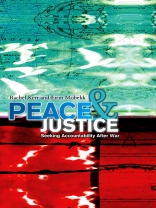In recent years there has been a tendency to intervene in the
military, political and economic affairs of failed and failing
states and those emerging from violent conflict. In many cases this
has been accompanied by some form of international judicial
intervention to address serious and widespread abuses of
international humanitarian law and human rights in recognition of
an explicit link between peace and justice.
A range of judicial and non-judicial approaches has been adopted
in recognition of the fact that there is no one-size-fits-all model
through which to seek accountability. This book considers the
merits and drawbacks of these different responses and sets out an
original framework for analysing transitional societies and
transitional justice mechanisms.
Taking as its starting point the post-Second World War tribunals
at Nuremburg and Tokyo, the book goes on to discuss the creation of
ad hoc international tribunals in the 1990s, hybrid/mixed courts,
the International Criminal Court, domestic trials, truth
commissions and traditional justice mechanisms. With examples drawn
from across the world, including the former Yugoslavia, Rwanda,
Cambodia, Timor-Leste, Sierra Leone, Uganda and the DRC, it
presents a compelling and comprehensive study of the key responses
to war crimes.
Peace and Justice is a timely contribution in a world where an
ever-increasing number of post-conflict societies are grappling
with the complex issues of transitional justice. It will be a
valuable resource for students, scholars, practitioners and
policy-makers seeking to understand past violations of human rights
and the most effective ways of addressing them.
关于作者
Rachel Kerr is a Lecturer in the Department of War Studies,
King’s College, London.
Eirin Mobekk is is an independent consultant and research
associate affiliated to the Centre for International Security and
Cooperation, Department of Peace Studies, University of
Bradford.












